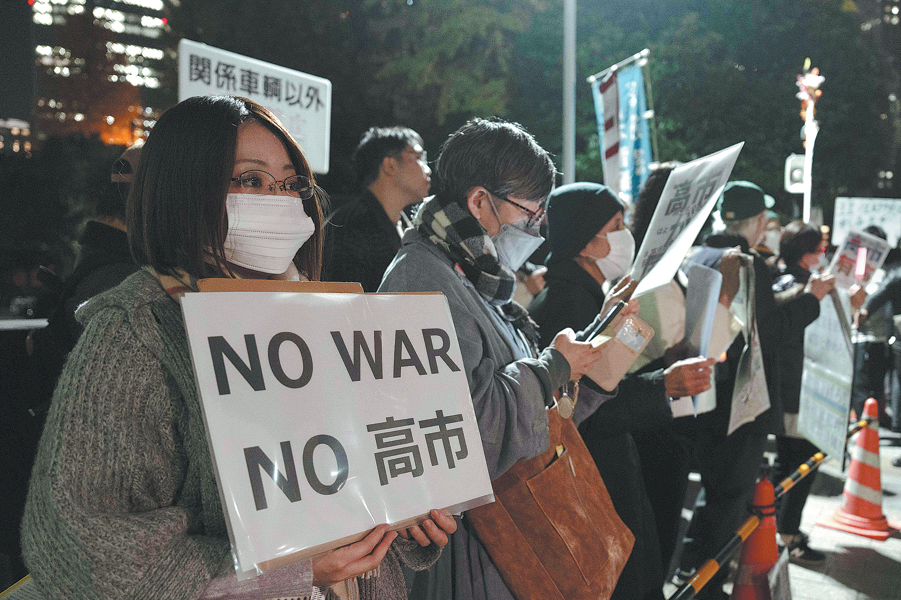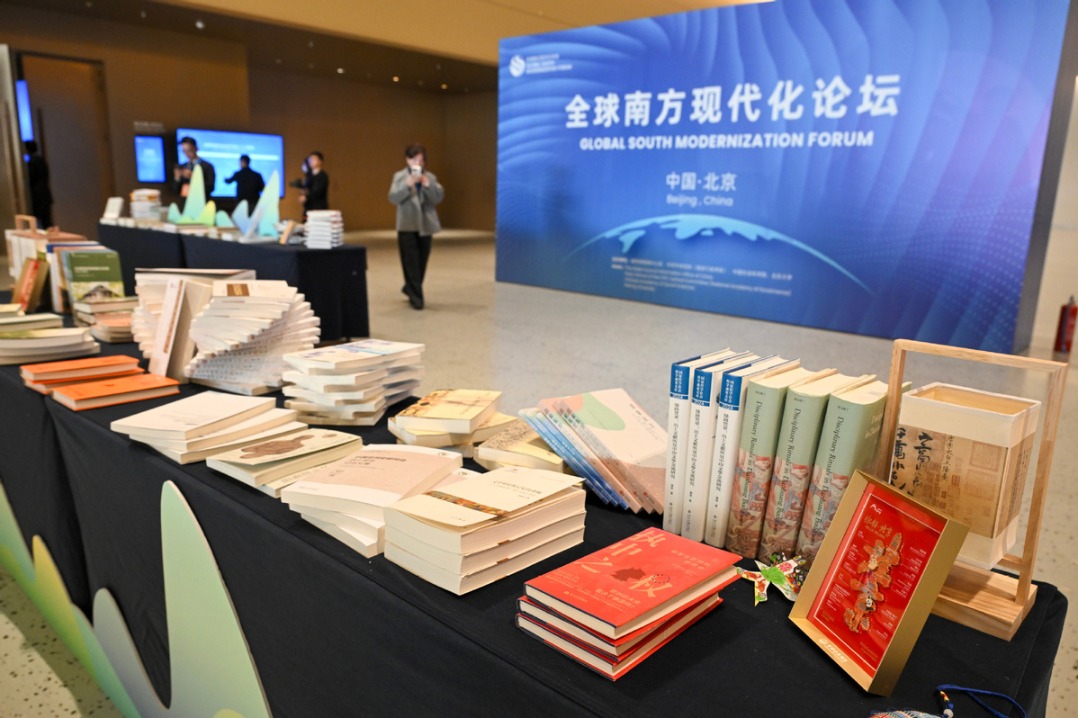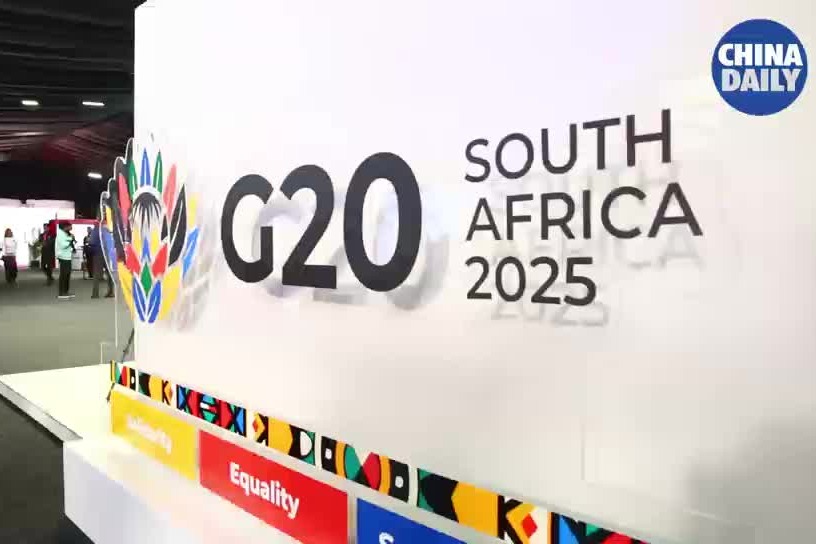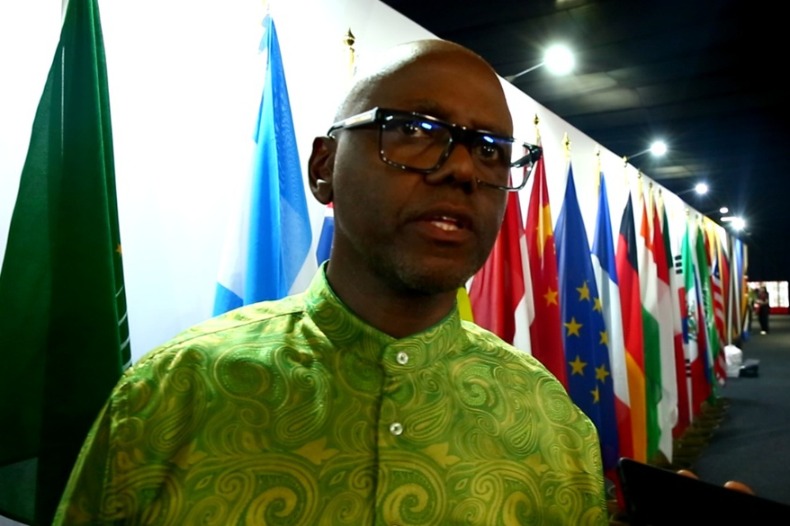Japan blasted for missile plan and ambiguity on Taiwan

Beijing sent a clear warning on Monday over Japan's plan to deploy midrange surface-to-air missiles close to China's Taiwan, calling the move "extremely dangerous".
Japanese Defense Minister Shinjiro Koizumi visited Yonaguni Island — which is only around 110 kilometers away from the island of Taiwan — on Sunday and sought understanding from the locals over a plan to place the missiles there.
His visit came in the wake of Japanese Prime Minister Sanae Takaichi's provocative comments in parliament earlier this month that suggested the country's possible military intervention in Taiwan.
Foreign Ministry spokeswoman Mao Ning told reporters on Monday in Beijing that Japan's deployment of offensive weapons in the southwestern islands near Taiwan "is a deliberate move that breeds regional tensions and stokes military confrontation".
Given Takaichi's erroneous remarks on Taiwan, "this move is extremely dangerous and should put Japan's neighboring countries and the international community on high alert", Mao said.
Article 9 of Japan's war-renouncing, pacifist Constitution clearly states that "the right of belligerency of the state will not be recognized".
Mao said Japanese right-wingers are sparing no efforts in removing restraints imposed by the pacifist Constitution and "leading Japan and the region to disaster and troubles".
"China has the resolve and capability to defend its state sovereignty and territorial integrity," she said.
This year marks the 80th anniversary of Taiwan's restoration to China after 50 years of Japan's colonial rule.
"China will never allow Japan's right-wing provocateurs to turn back the wheel of history, never allow external forces to lay their hands on China's Taiwan region, and never allow the resurgence of Japan's militarism," Mao added.
Observers said that Tokyo is attempting to whitewash the missile plan by claiming that "the deployment can help lower the chance of an armed attack" on Japan.
Lyu Yaodong, a research fellow at the Chinese Academy of Social Sciences' Institute of Japanese Studies and a professor at the University of CASS, said, "As a defeated country in World War II, Japan better stay committed to a peaceful path for development, and it is not expected to cross the line when it comes to its neighborhood.
"The Takaichi Cabinet should not underestimate our People's Liberation Army's courage and determination to safeguard state sovereignty," he said.
"If it wages another war of aggression, Japan will once again end up in a defeated scenario," he added.
Yukio Hatoyama, who was Japan's prime minister from 2009 to 2010, said that "it is quite natural for China to criticize" Takaichi's wrongful view about exercising "collective self-defense" regarding China's internal affairs concerning Taiwan, and he asked, "Why aren't Japanese media outlets criticizing this more?
"We must never repeat the same mistake," Hatoyama wrote in a post on social media platform X on Monday.
Tokyo's persistent refusal to retract Takaichi's Taiwan remarks has led to widening impacts over Japan's engagement with China in the bilateral context and beyond.
As of Monday, 12 direct-flight routes between China and Japan saw all their flights canceled.
When asked about the date for the 10th China-Japan-Republic of Korea Leaders' Meeting, Mao, the Foreign Ministry spokeswoman, said the Japanese leader's erroneous remarks "have damaged the foundation and atmosphere for China-Japan-ROK cooperation", making the conditions "currently unavailable" for holding the trilateral leaders' meeting.
On the sidelines of the G20 Summit in Johannesburg, South Africa, over the weekend, Japanese officials once again claimed that Tokyo is open to dialogue with Beijing, and said it has explained that Takaichi's remarks align with the "consistent position" of the Japanese government, without elaborating on what that position is.
Liu Jiangyong, a professor of Japanese studies at Tsinghua University, said the phrase "consistent position" has frequently been used by Tokyo to defend and gloss over Takaichi's remarks.
"What do they mean by 'there is no change' in position about Taiwan? Do they mean that there is no change in Japan's attempt for military intervention in Taiwan?" Liu asked.
Mao, the ministry spokeswoman, said on Monday, "What exactly do they mean by this so-called consistent position? Can Japan articulate this 'consistent position' in its entirety to the public?"
If Japan remains vague and continues to cross the line in its actions, and keeps repeating that its position has not changed without specifying what that position is, then such repetition amounts to "empty words, and simply fudges and hollows out the one-China position", she said when urging Tokyo to correct its wrongdoing and "stop pursuing its misguided course, still less say one thing but do another".
zhangyunbi@chinadaily.com.cn
































